89 F. high on Monday in the cities.
70 F. peak dew point yesterday at KMSP
83 F. average high for July 30.
90 F. high on July 30, 2011.
+ 6.4 F. July temperatures are more than 6 F. warmer than average during the first 30 days of July.
35 consecutive days above 80 in the Twin Cities.
2nd hottest July on record, second only to 1936.
1 tornado so far this year in Wisconsin (near Wausau
on May 24, a weak EF-0). Wisconsin should have seen 26 tornadoes as of
July 31.
33 tornadoes reported across Minnesota in 2012, but no touchdowns in or near the Twin Cities. Details below.
35 days above 90 F. so far at Chicago O'Hare, 36 90+
days at Midway. According to WGN-TV meteorologist Tom Skilling Chicago
sees an average of 17 days above 90 every summer season.
28 days above 90 at Madison, Wisconsin.
More 90s. I know, what a shock. After peaking in the
upper 80s to near 90 today (with a dew point dropping into the upper
50s to near 60) the mercury spikes upward again Wednesday. The 00z NAM
is hinting at 100 F. Not buying it - yet, but low to mid 90s seem likely
Wednesday afternoon, another shot at low 90s Thursday. Graphic: Iowa
State.
30 Day Percent Of Normal Precipitation. This
NOAA map
is useful to point out why farmers over southern and southwestern
Minnesota are so worried about the drought. Rainfall since June 30 has
been 5-25% of normal from Rochester and Albert Lea west to Worthington
and Granite Falls, another pocket of very dry weather over the Red River
Valley. In contrast, rainfall in the immediate metro has been close to
normal over the last 30 days, 1.5 times more than average from near
Detroit Lakes to Brainerd, just as wet from International Falls to the
Boundary Waters.
Will This Be The Hottest Summer On Record? Here's an excerpt (focused on Madison, Wisconsin) from
The Weather Guys: "
Through
the end of the day on July 24, Madison had had 28 days with high
temperatures at or above 90 degrees. The all-time record number of such
days is 40 recorded in 1955 (two were in June, 19 were in July, 15
were in August and four were in September that year). In the last 41
years, only six summers (1975, 1976, 1983, 1988, 1995 and 2012) have
had 20 or more such days. Of the five such summers before this one, the
number of days at or above 90 degrees after July 31 was seven, 10,
six, 16, and 10, respectively."
Photo credit above: "
Matt Winker walks on what used to be a
field of wheat that is now parched, July 12, 2012, on the Winker farm
in Belgium, Wisconsin. The drought has presented a unique opportunity
for Winkers to be proactive, which Matt has decided to embrace." (Mark Hoffman/Milwaukee Journal Sentinel/MCT)
4 More 90-Degree Days By Next Tuesday? After surging
into the 90s Wednesday a wind shift may offer ever-so-slight "relief"
Thursday and Friday, highs still brushing 90. After cooling into the low
80s Sunday (with a welcome dip in humidity) another surge of heat
arrives early next week, more low 90s possible next Tuesday, based on
the latest ECMWF guidance. The wettest days in sight: Saturday and next
Wednesday as cooler air approaches.
Drought Holding Steady In Areas Already Affected. No
significant improvement is on tap from the Ohio Valley to the Central
and Southern Plains, struggling through the worst drought since 1988 -
possible since the mid 1930 Dust Bowl years. Details and a
YouTube video from USDA: "
USDA meteorologist Brad Rippey says there will be no short term weather relief for most drought stricken areas."
33 Minnesota Tornadoes So Far In 2012. All those red
dots are tornado touchdowns since January 1; no tornadoes reported east
of a line from Willmar to Glencoe, which is a bit unusual.
Not a single tornado in or near the Twin Cities metro area.
Why? It's been too hot, frontal boundaries (and subsequent low-level
wind shear) pushed into central Canada. I'm not complaining. Map
courtesy of
SPC.
Jacksonville Waterspout. Numerous waterspouts (weak
tornadoes forming over warm water, the result of intense T-storm
updrafts) have been spotted in recent days from the Outer Banks of North
Carolina to the Florida Panhandle. Here's more from the Jacksonville
NWS, via
Facebook: "
Taken around 1:30pm 7/30/2012 St. Simons Island - Brunswick GA, near McKinnon Airport."
Second Highest Tornado Touchdown On Record.
It's official. The Denver/Boulder office of the NWS confirms the
tornado that touched down over the weekend on Mt. Evans was a
record-setter. Details via Facebook: "Confirmed
tornado touched down at 2:51 PM Saturday, July 28 near Mt. Evans,
Colorado. The estimated elevation where this tornado touched down was
11,900 feet. This would make this tornado the 2nd highest ever
recorded in the U.S."
Photo credit above: Sheila Gavins.
CB. A classic cumulonimbus captured over Bakersfield, Vermont by the Burlington office of the National Weather Service.
Yellowstone Closes Rivers To Fishing. Heat and drought is spreading west, now impacting rivers with Yellowstone National Park. Details from
islandparknews.com: "
Starting Wednesday, August 1, Yellowstone will implement some temporary fishing closures.
The following waterways will be closed to all fishing:
• Gibbon River below Gibbon Falls
• Firehole River below Keppler Cascades
• Madison River
Hot air temperatures, limited rainfall, runoff from thermal
features, and below average stream flows have all resulted in high
water temperatures in these rivers. Water temperatures in the Gibbon
River have been above 73 degrees F most of the past two weeks, with
water temperatures in the Firehole River above 78 degrees F."
Hurricane/Typhoon Radar Loops Since 2001. This is an
amazing link - Doppler radar loops showing all significant hurricanes and Pacific typhoon landfalls since 2001: "
These
loops were all created by me, and anyone may feel free to link to or
use them, but I'd appreciate if credit is given (Brian McNoldy, Univ of
Miami). Ground-based radar imagery of tropical cyclones is useful in
studying the precipitation structure in the eyewall and spiral bands
prior to landfall, but then also useful to study possible terrain
effects and the influence of landfall on the TC structure. The larger
loops might be choppy on machines with less memory.
* radar loop above from Hurricane Katrina from August 28-29, 2005; data from NOAA in New Orleans. Amazing.
Remarkable Cloud Photos. Thanks to meteorologist Jason Parkin in Des Moines for forwarding me a line from
thechive.com,
with some of the most spectacular cloud photos I've ever seen in one
place. How many of these can you name? From top left to bottom
right: "Asperatus, Shelf Cloud, Lenticular Arcs and Lenticularis".
Flooded North Korea Hit By More Torrential Rain. Here's an excerpt of an update from
Reuters: "
Widespread flooding in North Korea
appeared to worsen on Monday after 24 hours of torrential rain hit the
impoverished state which even in times of good harvest is unable to
feed itself. The
floods follow a period of drought and are certain to lift food prices
which have been rising sharply. According to defectors contacted by
Reuters in neighbouring South Korea, rice prices have already risen beyond the reach of ordinary households."
Photo credit above: "
Road posts are submerged in a flooded
street in Anju City, South Phyongan Province, North Korea, Monday, July
30, 2012. More heavy rain has pounded North Korea, flooding buildings
and farmland and forcing stranded people and their livestock to take
shelters atop rooftops." (AP Photo/Kim Kwang Hyon)
Olympic Viewers Have A New Reason To Complain, And The Means To Do It.
Maybe I'm a sap, but I think NBC is doing a pretty good job overall.
Look, if you really want to see events live you can - on your computer
or tablet. I'm fine with being "surprised" during primetime. Yes, it's
hard keeping all the people happy all the time. The tape-delay issue is
creating some serious viewer angst, who are taking to Twitter and FB to
vent.
The New York Times takes a look - here's an excerpt: "
NBC
might have believed that streaming all the sports live from the London
Games would have inoculated it from criticism of its Olympic
broadcasting policy. The past animosity rested on tape-delaying certain
marquee sports into prime time. But now Twitter
has turned into a fiery digital soapbox against NBC, as its users have
merged their resentment over tape delay with problems viewing the live
streams. The outrage has been distilled, simply, into #nbcfail. It is
difficult for now to determine if #nbcfail represents a tiny minority
or is a sampling of a widespread problem."
BMW Unveils The C Evolution Electric Scooter. No gas, 62 miles on a single charge? Details from
gizmag.com: "
BMW Motorrad has been busying itself perfecting an electric scooter design for some time now and, following the early prototype E Scooter we first reported on last year, and the more fully formed Concept e
model which popped up a few months later, the company has now unveiled
a new “near-production” electric scooter named the BMW C evolution
which boasts a reported 100 kilometers (62 miles) range from one full
charge and some impressive styling to match."
Augmented Reality Glasses Perform Real-Time Language Translation. Here's another potentially radical innovation, courtesy of
gizmag.com: "
Inspired by the Google's Project Glass,
computer programmer Will Powell has built a prototype real-time
translation system that listens to speech, translates it into one of 37
languages, and then displays the resulting text as subtitles directly
onto the user's glasses. In a nutshell, here's how it all works. A
Bluetooth microphone picks up the audio signal and connects to a
smartphone or tablet to provide a clean, noise-cancelled audio feed.
The signal is then sent to the Microsoft Translator service, which
detects the foreign language and transcribes it into the target
language of choice. Finally, the translated text is displayed on the
lower half of the glasses – effectively providing real-time subtitles
for a conversation in a foreign language."
Drought Bad. Water Good. Here's a "story" from
The Onion. I'm not sure but I suspect it's (very) tongue in cheek: "
KANSAS
CITY, MO—Sources nationwide are confirming this week that the current
drought is bad and that water is very good. "We don't like the
drought," local farmer Dan Rickey told reporters. "We like water." At
press time, sources are confirming that the drought is still happening
and that it's bad."
Flirting With 90. A wind shift to the northwest
saved us from 90 in the metro, an official high of 89 at KMSP, 86 St.
Cloud and a comfortable 78 at International Falls, soaked by .77" rain
yesterday.
Paul's Conservation Minnesota Outlook for the Twin Cities and all of Minnesota:
TODAY: Sunny, slight relief with lower humidity levels. Dew point: 60. Winds: NW 3-8. High: 88
TUESDAY NIGHT: Clear and pleasant. Low: 71
WEDNESDAY: Hot sun, slight chance of a late-day T-storm. Dew point: 65. High: 94
THURSDAY: Early puddles, then hot sun - isolated T-storm. Dew point: 62. Low: 71. High: 91
FRIDAY: Sticky, another round of late-day T-storms. Dew point: 66. Low: 72. High: near 90
SATURDAY: Strong/severe storms? Locally heavy rain possible. Dew point: 68. Low: 74. High: 85
SUNDAY: Better. Sunny, breezy and less humid. Dew point: 57. Low: 66. High: 82
MONDAY: Blue sky, heating up again. Dew point: 63. Low: 65. High: near 90
A Small Silver Lining
I saw a lake temperature of 84 F. on Lake
Minnetonka Saturday. July is 6.4 F. warmer than average, so I'm not
surprised. Chiggers have become a big nuisance up at the cabin, due to
unusual warmth.
But there's an upside: only 1 tornado so far in
Wisconsin (where closer to 26 should have touched down). No metro
tornadoes, but 33 (mostly small) tornadoes over far southern &
western MN. Why? Its been too hot. Tornadoes need large temperature
extremes, frontal boundaries and low level wind shear (rapidly changing
speed/direction with altitude). With a heat-pump high stalled over the
Midwest since late June we haven't had the dynamics for twisters. No
complaints here.
Less quality time in the basement, curled up in the fetal position.
The National Weather Service is upgrading to
"dual polarization" Doppler August 20, making it easier to detect
tornadoes, and distinguish between rain, snow and ice. The upgrade may
take 2 weeks. I'll be holding my breath. No severe storms, please!
A quiet Tuesday gives way to 93-98 F tomorrow;
T-storms late Wednesday, again Saturday. A cooler front treats us to a
glorious Sunday, but 90s return next week.
Summer isn't nearly done with us just yet.
Climate Stories...
Want To Know Whether The Climate Has Warmed? Ask The Trees. Here's an excerpt of an
MPR article from Lee Frelich, Director of The University of Minnesota Center for Forest Ecology: "
This
summer's heat wave, following the warmest winter on record and an
exceptionally early spring, makes one wonder if we have reached the
point where effects of global warming can be felt and seen on the
landscape. I think so. We have had warm winters and summer heat waves
before. Warm and cool periods, dry and wet periods have always occurred
and will continue to come and go. However, as time goes on they are
superimposed on a systematic rise in temperature caused by the
accumulation of carbon dioxide (CO2) and other heat-trapping gases in
the atmosphere.... A lack of winter cold — January minimum temperatures in northern Minnesota have risen 8 degrees in the last 30 years —
give the green light to maple and basswood to move north into
territory where they would previously have been killed by extreme cold."
Photo credit above: "
Lee Frelich: It is an interesting time to be a forest ecologist in Minnesota." (Photo courtesy of Paul Jost)
What Evidence Will It Take To Convince Climate Skeptics? Here's an excerpt from a story at
The Guardian: "
So,
that's it then. The climate wars are over. Climate skeptics have
accepted the main tenets of climate science – that the world is warming
and that humans are largely to blame – and we can all now get on to
debating the real issue at hand: what, if anything, do we do about it?
If only. Yesterday's announcement by Prof Richard Muller that, as a result of his Berkeley Earth Surface Temperature
(Best) project's research, he had undergone a "total turnaround" in
his views on climate science and now accepted that the Earth's land has
warmed by 1.5C over the past 250 years and that "humans are almost
entirely the cause", might be seen by many as a watershed moment in this
long, often bitter debate. But not, it would appear, for climate
sceptics - the very people he designed his project to please."
Graphic credit above: "
The annual and decadal land surface
temperature from the BerkeleyEarth average, compared to a linear
combination of volcanic sulfate emissions and the natural logarithm of
CO2." Photograph: BerkeleyEarth.
So Called Blockbuster Climate Change Studies Prove Little.
I give physicist Richard Muller, lead author of the "BEST" study,
credit for following the scientific method, and following the data,
wherever it leads. He also proved that it's OK to change your mind. My
concern: some professional climate deniers have backed themselves into a
corner, to the point where they feel like they can't do a 180 and agree
that AGW is real. They cherrypick on the "data" that supports their
conspiracy-theory-of-the-week. Say what you will about Dr. Muller, but
at least he had the courage of his convictions - in spite of being
partially funded by the Koch brothers, he let the chips fall where they
may and in the end was true to the science.
Capital Weather Gang
meteorologist Jason Samenow weighs in with his own perspective of the
new "Muller/Berkeley" research findings and a (skeptical) study of
station siting from WUWT's Anthony Watts in a post; here's an excerpt: "
Over the weekend, two groups released so-called “game-changing” climate change studies. The first,
led by “converted skeptic” University of California-Berkeley professor
Richard Muller, claims almost all of the warming observed in modern
times is due to human activities. The second,
led by blogger Anthony Watts, in an apparent attempt to diminish the
impact of the Muller paper, argues warming in the U.S. since 1979 is
about half the amount calculated by NOAA. Both studies staged
high-profile releases and represent concerted efforts to influence
public perception about what we know about climate science. But
neither has been published in a peer-reviewed publication and there is
cause to question their legitimacy."
Have The Koch Brothers Changed Their Minds About Climate Change? Here's an excerpt from an article at
U.S. News & World Report: "...
University
of California-Berkeley Physics professor Richard A. Muller, who led
the new study, told Whispers that he believes the Koch brothers really
do "want to get the science clarified." "People think they can look
into the minds of Charles and David Koch," says Muller, who himself was previously a climate change denier.
"But I have had conversations with them, where they are interested in
the science and the proof, so that these issues [on climate change]
would be resolved."
Climate Change Skeptics Unwarmed By Scientist's Reassessment Of Cold Facts. Here's a blurb from
The Sydney Morning Herald: "
AUSTRALIA'S
climate change sceptic community remains defiant following the
self-described "conversion" of prominent sceptic scientist Richard
Muller, who had led a vast international research effort to debunk
global warming science. Professor Muller's team, partly funded by US
fossil fuel interests, has now made public its findings and concluded
that human emissions are in fact driving climate change — at a slightly
faster rate than that asserted by the UN's Intergovernmental Panel on
Climate Change. Professor Muller said the results had prompted a "total
turnaround" in his views. "We were not expecting this, but as
scientists, it is our duty to let the evidence change our minds."
Energy Week Ahead: Forecast Calls For Hot Climate-Change Debate. Here's an excerpt from
Bloomberg Businessweek.com: "
Oklahoma
Senator James Inhofe will get a chance to cross-examine perpetrators of
what he dubbed “The Greatest Hoax” this week, as a Senate panel takes
on the science of climate change. Inhofe, the top Republican on the
Senate Environment and Public Works Committee, published a book by that
name this year, saying the scientific theory of global warming is a
conspiracy to increase government regulation of business and the
economy. Carbon-dioxide emissions since the Industrial Revolution have
led to a warming of the earth’s temperature, which threatens to cause
extreme weather, drought and coastal flooding, according to the U.S.
Global Change Research Program."

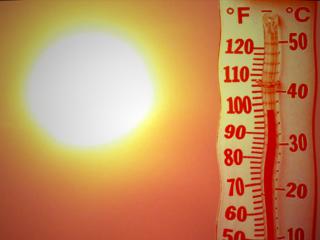
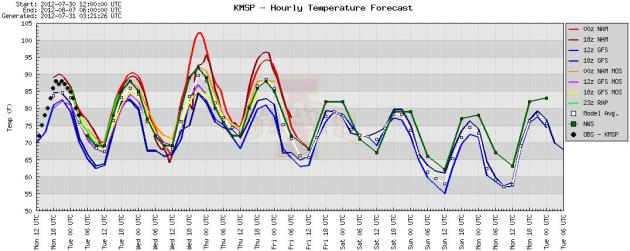
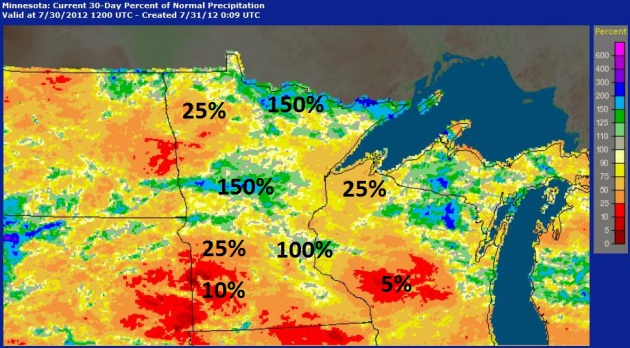
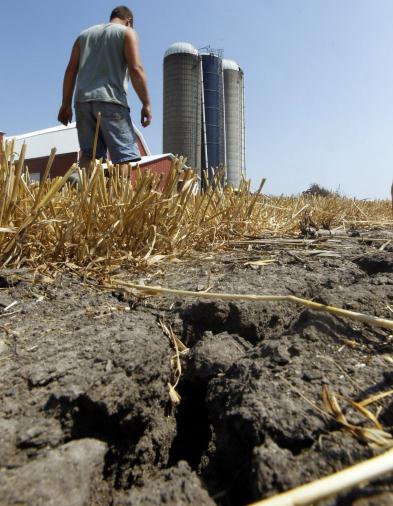

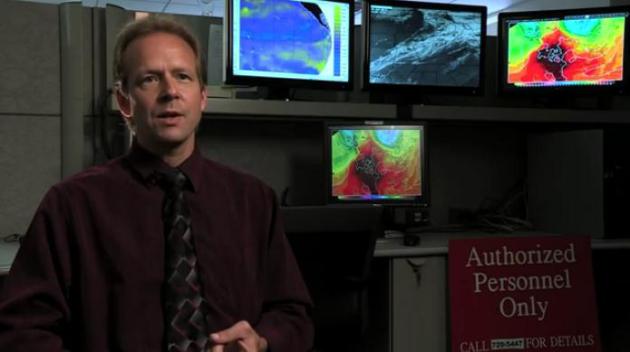
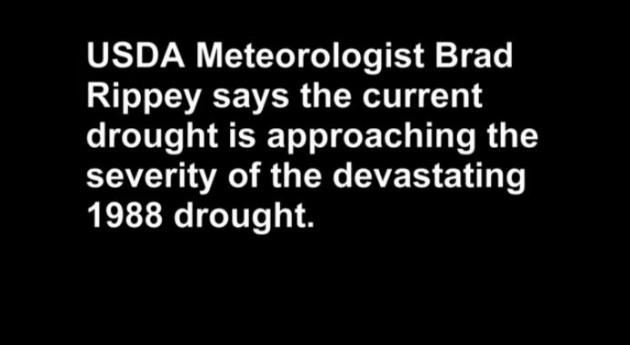

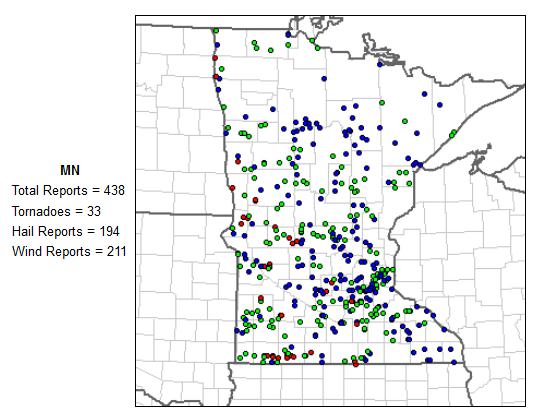
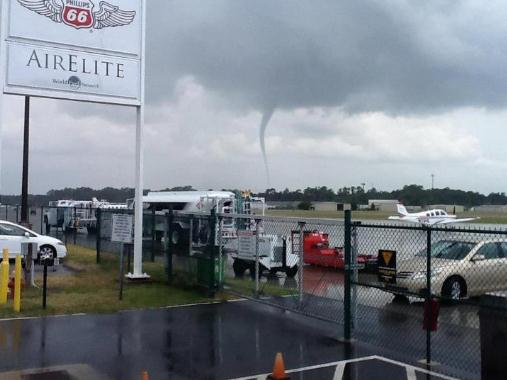
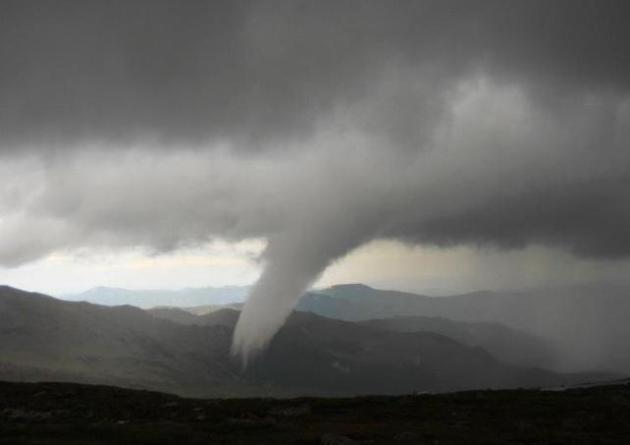
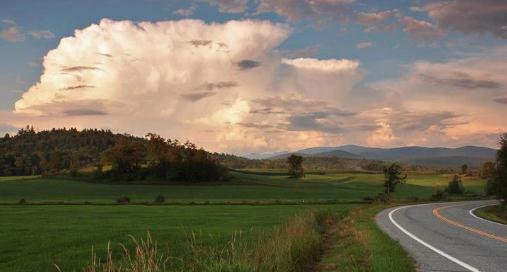
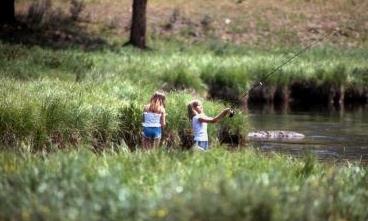
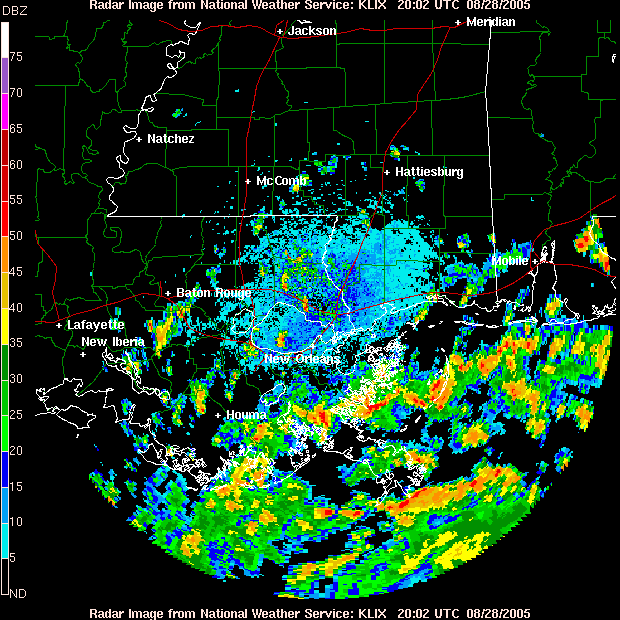
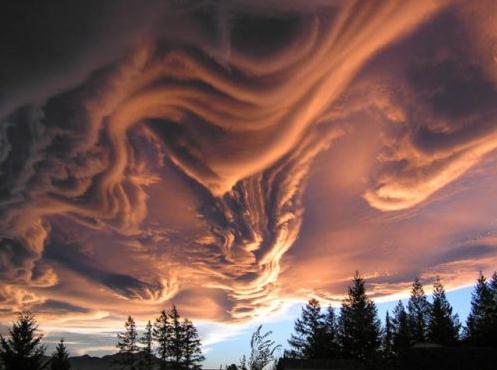
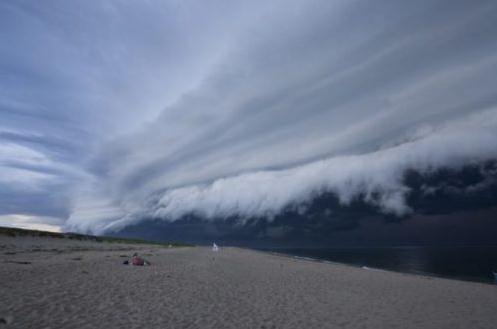
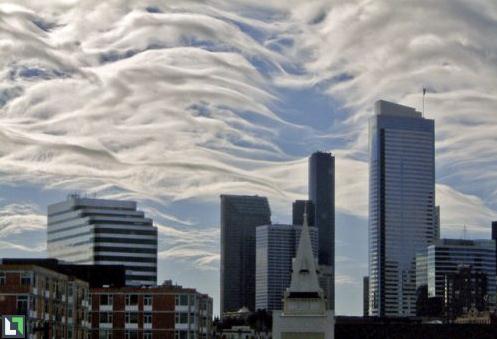
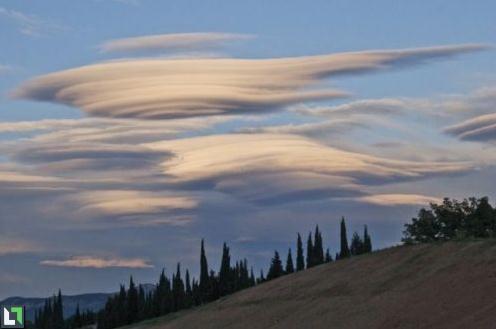
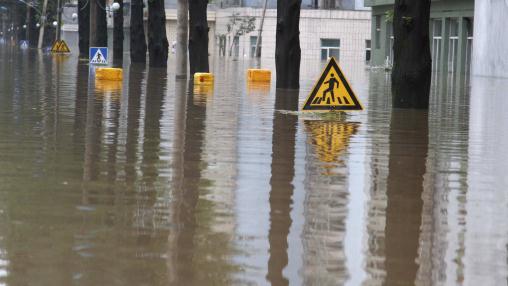



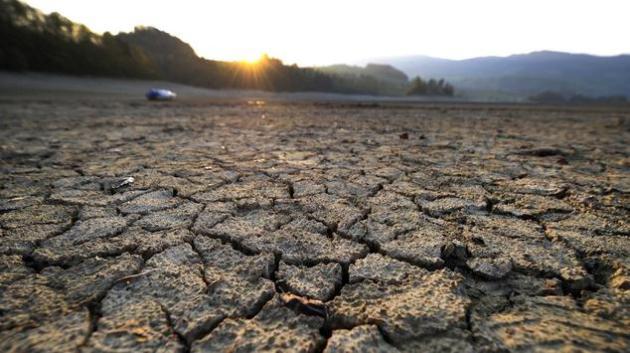
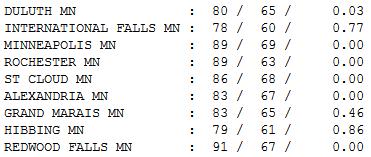
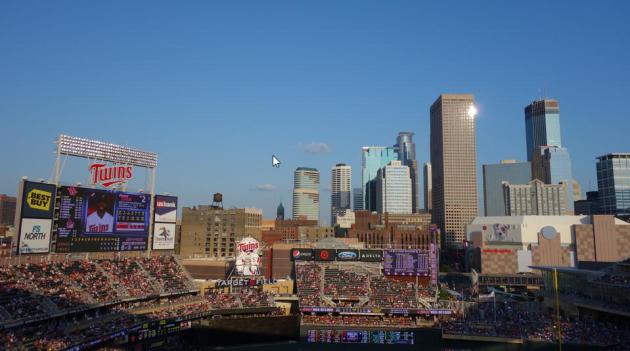
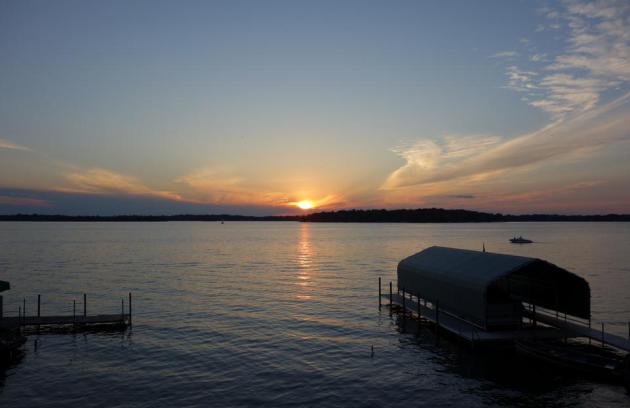
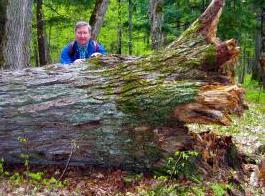
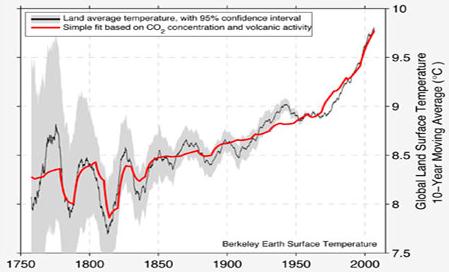

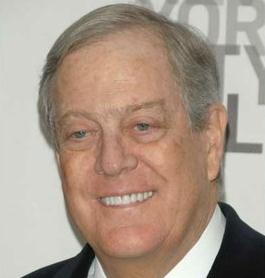


No comments:
Post a Comment